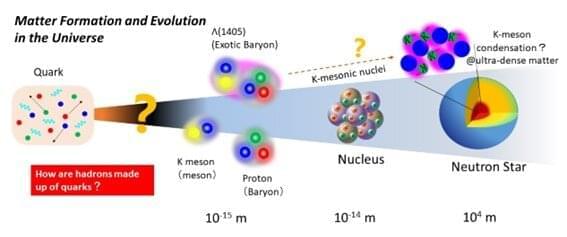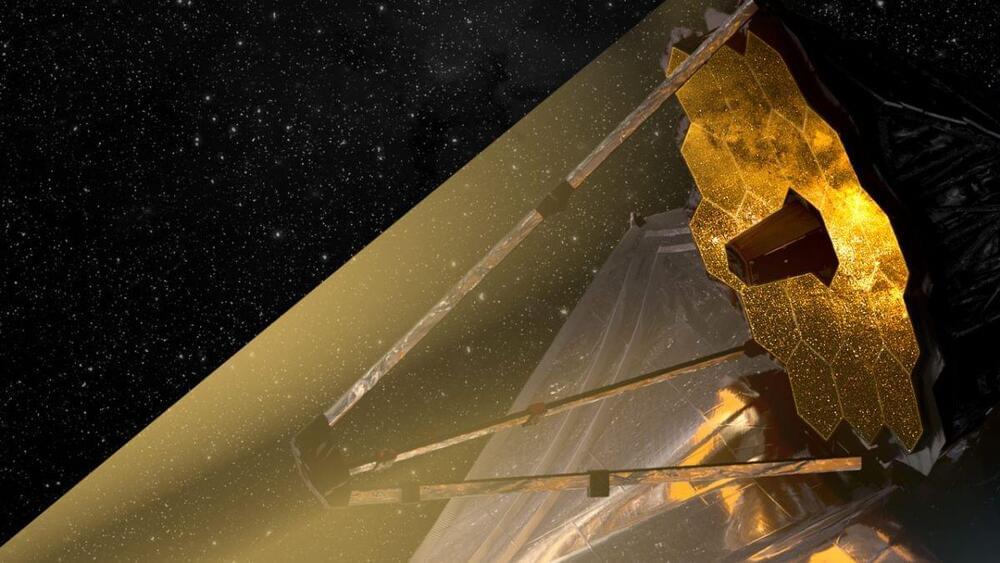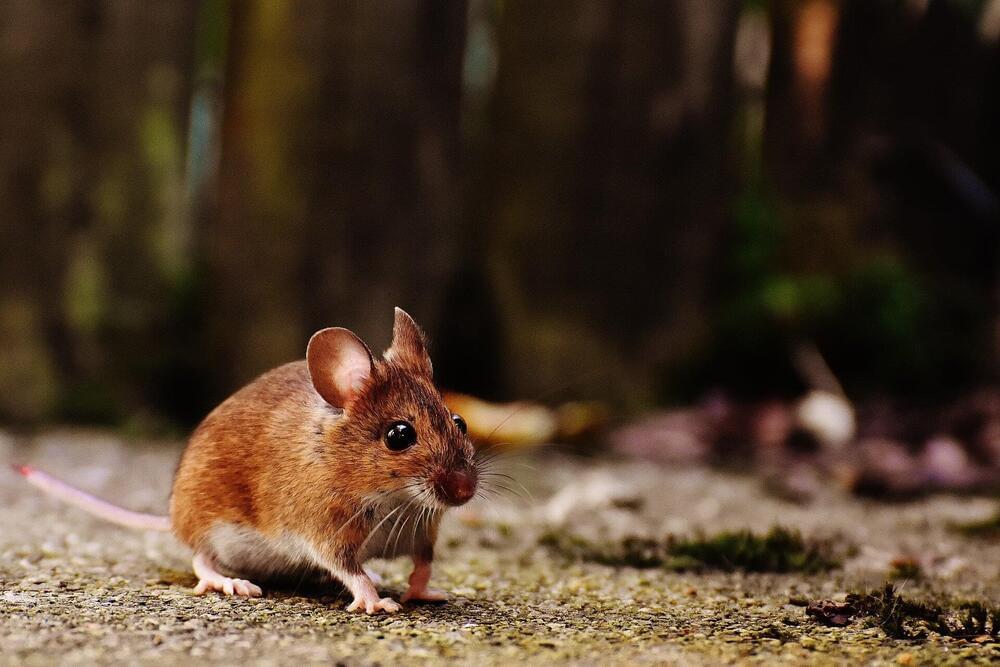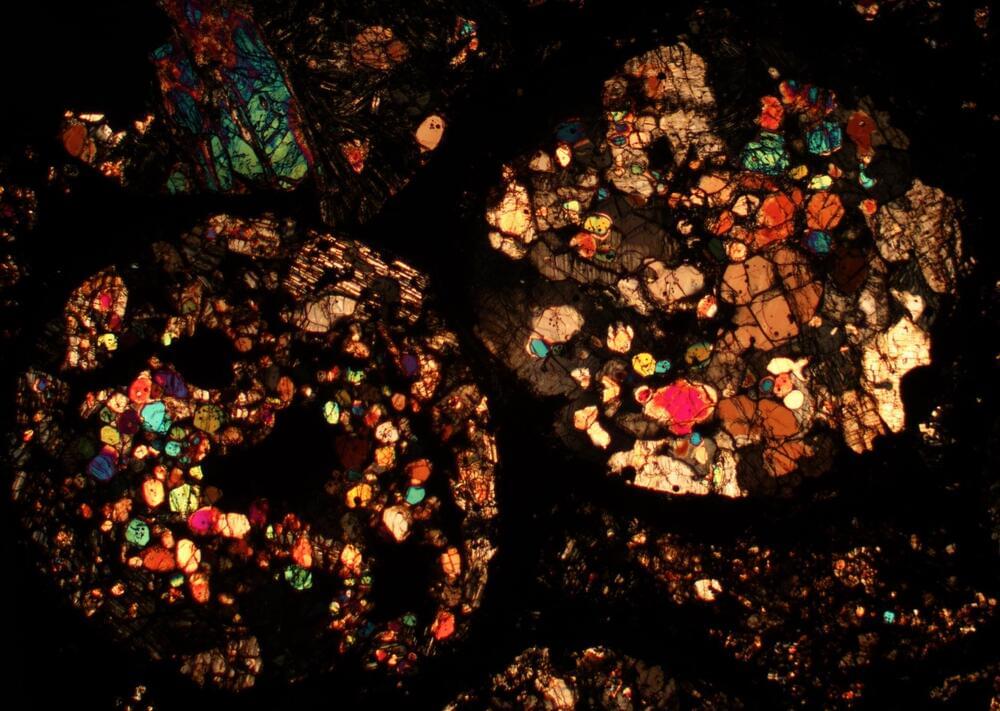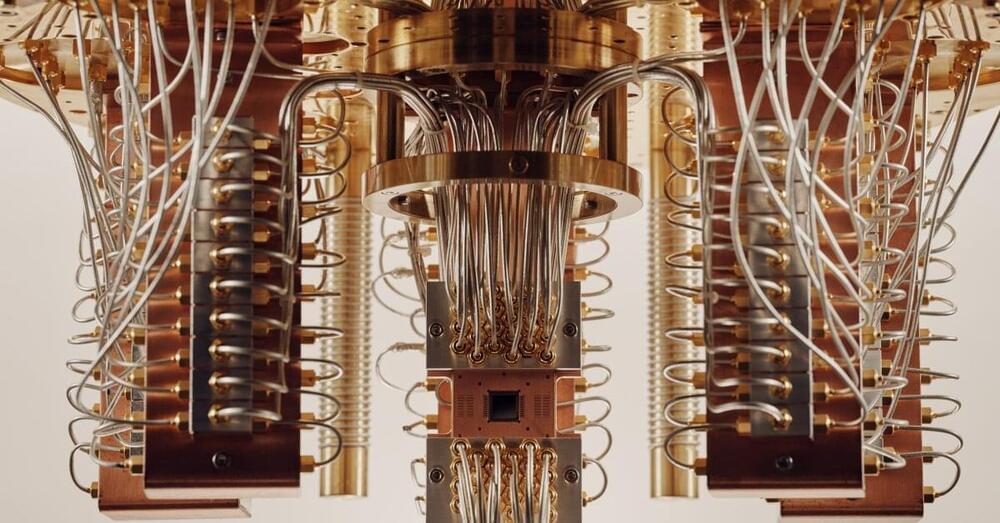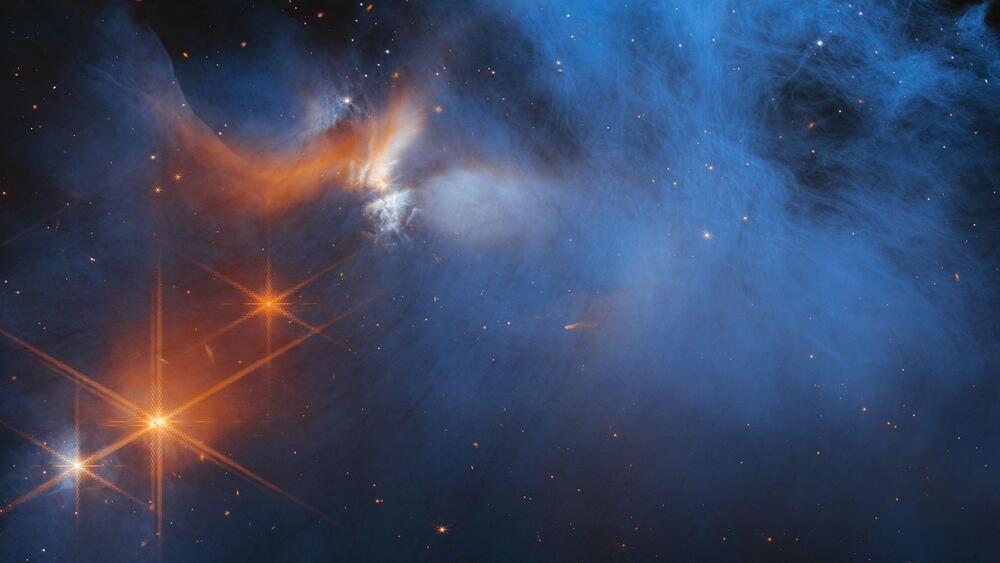The standard model of particle physics tells us that most particles we observe are made up of combinations of just six types of fundamental entities called quarks. However, there are still many mysteries, one of which is an exotic, but very short-lived, Lambda resonance known as Λ(1405). For a long time, it was thought to be a particular excited state of three quarks—up, down, and strange—and understanding its internal structure may help us learn more about the extremely dense matter that exists in neutron stars.
Investigators from Osaka University were part of a team that has now succeeded in synthesizing Λ(1405) for the first time by combining a K- meson and a proton and determining its complex mass (mass and width). The K− meson is a negatively charged particle containing a strange quark and an up antiquark. The much more familiar proton that makes up the matter that we are used to has two up quarks and a down quark. The researchers showed that Λ(1405) is best thought of as a temporary bound state of the K- meson and the proton, as opposed to a three-quark excited state.
In their study published recently in Physics Letters B, the group describes the experiment they carried out at the J-PARC accelerator. K− mesons were shot at a deuterium target, each of which had one proton and one neutron. In a successful reaction, a K− meson kicked out the neutron, and then merged with the proton to produce the desired Λ(1405).
